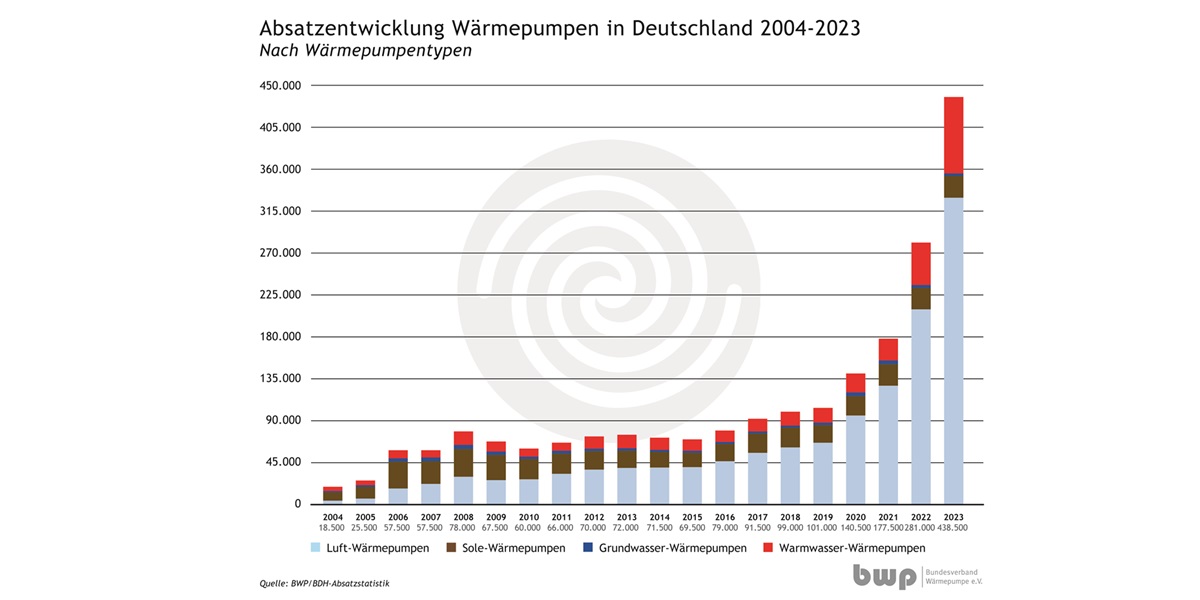From pv magazine Germany
BWP, the German heat pump association, has reported that around 356,000 heat pumps were sold in Germany last year. By comparison, the country deployed approximately 236,000 units in 2022.
The trade body said that heat pump sales rose by more than 50% for the second year in a row last year.
“This year must not be a wasted year for the heating transition,” BWP CEO Claus Fest said. “While sales skyrocketed in the first half of 2023, the very destructive and misleading debate about the Buildings Energy Act lasted a long time, and waiting for the new funding framework noticeably paralyzed the market, especially in the last quarter … If our capacities were anything to go by, the target of 500,000 heat pumps agreed with the federal government would be achievable this year.”
The industry has invested in production expansion and training capacity and prepared for the heat pump ramp-up in recent years, according to Fest. He said the climate policy goal of 6 million heat pumps by 2030 is also realistic.
“The trend in sales has been declining since June 2023. The most recent slump in December 2023 is particularly alarming,” added BWP Managing Director Martin Sabel. “If the general conditions do not improve and politicians do not actively intervene, we expect sales to remain the same or even decline in 2024.”
Energy prices are a key factor in achieving climate goals in the building sector, the BWP said. Anyone who installs a heat pump at the moment is already saving a lot of CO2, thereby protecting themselves from rising CO2 prices for fossil fuels and ultimately saving money. However, switching to a heat pump only becomes particularly attractive for many consumers when the ratio of gas to electricity prices is one to two and a half or less.
Against this background, it is incomprehensible that heat pump electricity still has twice the taxes, levies and levies as natural gas, said Sabel. He urged politicians to create fair competition conditions and to ensure that fossil energy is at least no longer favored.
This content is protected by copyright and may not be reused. If you want to cooperate with us and would like to reuse some of our content, please contact: editors@pv-magazine.com.



To be cost effective, heat pumps need to work on cheap, off-peak electricity. That requires:
– A large heat store. German homes often have room for a 1000 litre water tank. British homes don’t.
– Access to variable tariffs. I note that in Germany there is a fixed network charge of about 20c per KWh, meaning no cheap off peak tariffs.
Since network costs are determined by maximum load, network charges should be lowered at off peak times and raised at peak times.
Except that of course requires smart meters, otherwise the network operators have no clue when the retailers are supplying electricity.
There will be changes this year, resulting in decreased network charges for heat pumps. But the details are still work in progress…